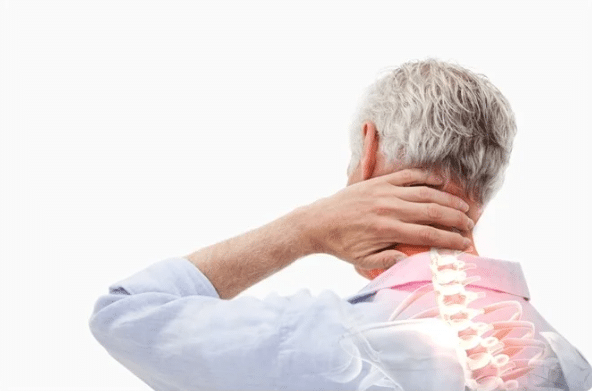Chronic pain is a complex and often debilitating condition that affects millions worldwide. Unlike acute pain, which serves as a warning signal for injury or illness, chronic pain persists long after the initial injury has healed. In this article, we will delve into the intricacies of chronic pain, its variations, and strategies for managing it effectively.
Understanding Chronic Pain
Chronic pain can manifest in various forms, including neuropathic pain, nociceptive pain, and psychogenic pain. Neuropathic pain results from damage or dysfunction of the nervous system, causing abnormal signaling of pain messages.
Nociceptive pain, on the other hand, stems from tissue damage and inflammation, activating pain receptors known as nociceptors. Psychogenic pain, though less understood, is believed to arise from psychological factors such as stress, anxiety, or depression.
Variations of Chronic Pain
Neuropathic Pain
Neuropathic pain often presents as burning, tingling, or shooting sensations, and it can be challenging to treat. Conditions such as diabetic neuropathy, post-herpetic neuralgia, and spinal cord injury commonly cause neuropathic pain. Treatment may involve medications that target nerve signaling, such as anticonvulsants or antidepressants, along with physical therapy and lifestyle modifications.
Nociceptive Pain
Nociceptive pain arises from actual or potential tissue damage and is typically described as dull, aching, or throbbing. Conditions like osteoarthritis, inflammatory bowel disease, and cancer can induce nociceptive pain. Management often includes analgesic medications, anti-inflammatory drugs, and interventions like physical therapy or surgery, depending on the underlying cause.
Psychogenic Pain
Psychogenic pain is more elusive, as its origins are deeply intertwined with psychological and emotional factors. Conditions such as fibromyalgia, somatic symptom disorder, and tension headaches are associated with psychogenic pain. Treatment approaches may encompass cognitive-behavioral therapy, relaxation techniques, and stress management strategies to address both the physical and psychological aspects of pain.
Strategies for Managing Chronic Pain
Medications
Pharmacotherapy plays a crucial role in managing chronic pain by targeting specific pathways involved in pain transmission and perception. Analgesics like acetaminophen and nonsteroidal anti-inflammatory drugs (NSAIDs) are commonly used for nociceptive pain, while drugs like gabapentin and pregabalin are effective for neuropathic pain. Opioids are reserved for severe pain but require careful monitoring due to their potential for dependence and addiction.
Physical Therapy
Physical therapy aims to improve mobility, strength, and function while reducing pain and disability. Techniques such as therapeutic exercises, manual therapy, and modalities like heat or cold therapy can alleviate pain and improve overall well-being. Additionally, adaptive devices and assistive technologies may be recommended to facilitate daily activities and minimize strain on affected areas.
Psychological Interventions
Addressing the psychological component of chronic pain is essential for comprehensive management. Cognitive-behavioral therapy (CBT) helps individuals develop coping strategies, challenge negative thought patterns, and improve their quality of life. Relaxation techniques, mindfulness meditation, and biofeedback are also effective in reducing stress and enhancing pain tolerance.
Complementary and Alternative Therapies
In addition to conventional treatment modalities, many individuals explore complementary and alternative therapies to complement their pain management regimen. These approaches include acupuncture, massage therapy, chiropractic care, herbal supplements, and mind-body practices like yoga and tai chi. While research on their efficacy varies, some people find relief and improved well-being through these holistic approaches. It’s essential to discuss these options with healthcare providers to ensure they align with individual needs and preferences.
Nutrition and Lifestyle Modifications
Diet and lifestyle modifications can significantly impact chronic pain management. Consuming a balanced diet rich in anti-inflammatory foods such as fruits, vegetables, whole grains, and omega-3 fatty acids can help reduce inflammation and alleviate pain. Adequate hydration, regular exercise, sufficient sleep, and stress management techniques also play pivotal roles in managing chronic pain. Furthermore, avoiding tobacco and excessive alcohol consumption can prevent exacerbation of pain symptoms and promote overall health.
Support Networks and Peer Groups
Living with chronic pain can be isolating, leading to feelings of loneliness and frustration. Engaging with support networks, peer groups, and online communities can provide valuable emotional support, encouragement, and practical advice for coping with pain. Sharing experiences, tips, and resources with others who understand the challenges of chronic pain can foster a sense of belonging and empowerment. Additionally, counseling and support services may be available through healthcare providers or community organizations to address the psychological impact of chronic pain.
Advancements in Pain Research
Advancements in pain research continue to enhance our understanding of chronic pain mechanisms and treatment approaches. Emerging technologies such as neuromodulation, gene therapy, and targeted drug delivery hold promise for more precise and effective pain management with fewer side effects. Furthermore, interdisciplinary collaborations among scientists, clinicians, and patients are driving innovation in personalized pain medicine, tailoring treatment strategies to individual needs and optimizing outcomes.
Empowering Patients as Advocates
Empowering patients as advocates is crucial for improving chronic pain care and promoting policy changes that address the needs of those living with pain. Advocacy efforts may involve raising awareness about the impact of chronic pain, advocating for access to comprehensive pain management services, and challenging stigmas associated with pain conditions. By amplifying the voices of individuals affected by chronic pain, we can drive positive change in healthcare systems and foster a more compassionate and inclusive society.
Frequently Asked Questions (FAQs)
Q. What causes chronic pain?
A. Chronic pain can result from various factors, including injuries, medical conditions such as arthritis or neuropathy, surgeries, and unresolved acute pain. Additionally, psychological factors like stress, anxiety, and depression can contribute to the experience of chronic pain by amplifying pain perception and affecting pain processing pathways in the brain.
Q. How is chronic pain diagnosed?
A. Diagnosing chronic pain involves a comprehensive evaluation by healthcare professionals, including a detailed medical history, physical examination, and diagnostic tests such as imaging studies (X-rays, MRI) or nerve conduction studies. Individuals need to describe their pain symptoms accurately, including the location, intensity, quality, and any factors that worsen or alleviate the pain.
Q. What are the treatment options for chronic pain?
A. Treatment for chronic pain varies depending on the underlying cause, severity, and individual preferences. Common treatment modalities include medications (e.g., analgesics, anti-inflammatory drugs, antidepressants), physical therapy, psychological interventions (e.g., cognitive-behavioral therapy), complementary therapies (e.g., acupuncture, massage), lifestyle modifications (e.g., exercise, nutrition), and interventional procedures (e.g., nerve blocks, spinal cord stimulation).
Q. Are opioids an appropriate treatment for chronic pain?
A. Opioids may be prescribed for chronic pain when other treatment options have been ineffective, and the benefits outweigh the risks. However, opioids carry a risk of dependence, addiction, and adverse effects, so they should be used cautiously and under close supervision by healthcare providers. Non-opioid medications and non-pharmacological interventions are often recommended as first-line treatments for chronic pain.
Q. How can I cope with the emotional impact of chronic pain?
A. Living with chronic pain can take a toll on emotional well-being, leading to feelings of frustration, anxiety, depression, and social isolation. Coping strategies such as relaxation techniques, mindfulness meditation, engaging in enjoyable activities, maintaining social connections, seeking support from loved ones or support groups, and counseling or therapy can help individuals manage the emotional challenges associated with chronic pain and improve overall quality of life.
Conclusion
Chronic pain is a multifaceted condition that demands a holistic approach to treatment. By understanding its various manifestations and implementing a combination of pharmacological, physical, and psychological interventions, individuals can regain control over their lives and experience relief from the burden of persistent pain. Through ongoing research and advancements in pain management, we continue to pave the way toward a brighter future for those journeying through the complexities of chronic pain.
Take control of your pain and reclaim your life! Schedule your appointment today 1-212-794-8800 or email us at info@patientsmedical.com.
Our medical center is in New York City.
Patients Medical PC
1148 Fifth Avenue, Suite 1B
New York, NY 10128

Rashmi Gulati, MD, provides innovative, individualized health care that nurtures mind, body, and spirit. Since 2004 she has been the medical director at Patients Medical, where she delivers comprehensive personalized health care, treating each patient as a respected, unique individual. Through their integrative health care center in the heart of Manhattan, Dr. Gulati and her colleagues have become premier care providers serving patients locally and throughout the world.
About Patients Medical
PatientsMedical.com is headed by Rashmi Gulati, MD who is a board-certified physician with over 20 years of integrative, functional and internal medicine experience.
Patients Medical is a holistic wellness center dedicated to helping its clients discover health and rediscover vitality. Their physicians combine the best of conventional and holistic medicine with state-of-the-art equipment to provide comprehensive care and treatment to their patients. They focus on the root causes of secondary medical conditions, integrating modern medicine, holistic practices, and natural supplements to fast-track healing and prevent disease. Every year, thousands of existing and new patients continue to visit the center, seeking an alternative medical approach to a variety of health issues.
In addition, Patients Medical provides access to over 15,000 affordable supplements on their affiliated website: www.MySupplements.Store
Our medical center in New York City.
Patients Medical PC
1148 Fifth Avenue, Suite 1B
New York, NY 10128

